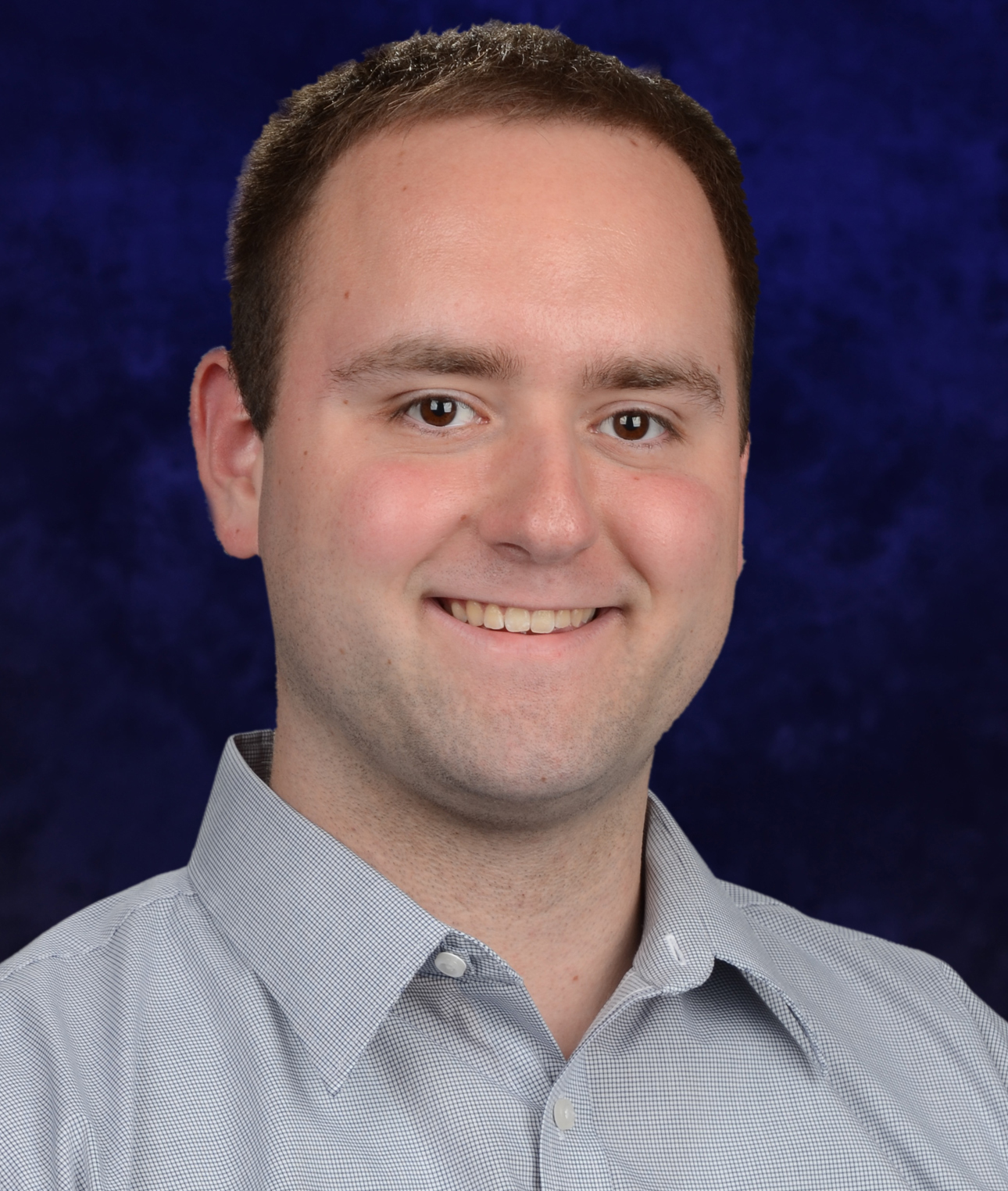Lewis Day
April 28, 2015

Lewis Day
Colleges: Liberal Arts and Honors College
Majors: Mass Communication
Why did you choose Purdue?
I chose Purdue for a multitude of reasons. First, I grew up in Lafayette, so from the time I was a young child, I knew there was an outstanding university right in my town. In elementary, middle and high school, I participated in various Purdue sponsored events, which allowed me to see firsthand the kind of excellence Purdue encouraged in its students. I also attended sporting events from a very young age, which exposed me to another major reason I chose Purdue, the Purdue All-American Marching Band. When actually deciding what schools to apply to, Purdue was at the top of my list because I knew I could continue my passion for music with others who loved to play but did not want to actually major in music. Finally, Purdue runs in my family. My parents met when they were both graduate students at Purdue, and my older brother and his wife also attended Purdue for their undergraduate education.
What is your passion and why do you do what you do?
My passion is video production. Since I was very young, I have had two traits that have mixed together to create my interest in my chosen career: the want to entertain others; and a love for working with technology. I am planning to have a career in video production, whether that is in the television industry or the live event industry, likely as a director. I love the rush I get when problem solving on the spot when something goes wrong. There is a lot of pressure, because everyone expects the production to be flawless, and because entertainment is both visual and audible, the crowd will notice if something goes terribly wrong. So, my passion is solving those problems before they come up, and telling a story through video.
Why did you choose to graduate with Honors? What was the main benefit for you?
I chose to graduate with Honors for several reasons. I wanted the challenge of working with peers who would challenge me and cause me to do my best because they were doing their best. I wanted the benefit of getting to work closely with and getting to know the top faculty members and professors at this outstanding university. I wanted to take classes in interesting subjects that went deeper than the surface information I could receive in any other class; classes that would challenge me. These have all been benefits for me, in addition to the benefit of the scholarly project. My project allowed me to delve deeper into my field than I have been able to in any single other class, and it has allowed me to apply the knowledge I have gained over the past four years in a way that I otherwise would not have had the opportunity to do in college.
Explain your thesis/scholarly project.
My scholarly project has morphed and changed over the past couple years since I began planning it. At first I thought I would create a video production and that would be it, but then I decided there still needed to be more to the project. I knew I did not want to only write a thesis paper, because that is not what I do in my major. Eventually, I decided to mix the two. For the video portion of my project, I worked as an intern for Sagamore Council, Boy Scouts of America last summer creating four different videos to promote their different summer camping programs. This part of the project allowed me to apply the technical knowledge I had learned over my four years in my many video production classes. The second part of my project was the paper. Originally, I planned to use the paper to reflect on the video portion of my project and critically analyze it. However, the more I thought about video production in the environment in which I find myself at Purdue, the more I realized that the video production process really is not all that different from the steps of the Scientific Method used by many of my STEM peers as well as those in the College of Liberal Arts. As I considered this in greater detail, the two processes naturally came together into a paper which explains in more depth each step of the video production process and to which step of the Scientific Method it relates.
How did you get into this research?
I sort of stumbled into this research topic. I was originally producing videos, and the idea came to me. The idea did not come out of nowhere, however. Through all of my Honors and core classes, I was exposed to many different fields of study. A common tie that bound them all together was the use of a specific method to find answers, usually the Scientific Method. Through my classes, I had a lot of experience navigating it, so it naturally came about that I would consider applying it to my own field, video production.
What were some of the highlights during your college career?
A few that stand out include being in President Cordova’s Leadership Class freshman year, traveling to Ireland and Spain with Purdue Bands and Orchestras, winning the Charles O. McGaughey Leadership Award, and having the opportunity to build a new internet radio station to be run by students for students. President Cordova’s Leadership Class allowed me to begin networking with all sorts of prominent figures both from within and outside of Purdue, as well as with my peers. To this day, it is amazing to see what that group of students has been able to accomplish in our time at Purdue. While my entire time with Purdue Bands and Orchestras in the “All-American” Marching Band and the concert bands has been a major highlight, I especially appreciated the opportunities to travel abroad. In fact, this fall I will add another country to that list, because the band is going to Medallin, Colombia in August! The McGaughey Leadership Award was a huge achievement to me, because it meant that others recognized my countless hours of service to the Purdue community and beyond. Finally, as a senior in Mass Communication, I was given the opportunity to leave a legacy that will last far beyond my time here at Purdue by helping to build the Brian Lamb School of Communication’s brand new Internet radio station. I researched and helped purchase the equipment, and I figured out how to get us broadcasting.
What was your favorite Honors course and why?
I have three that are my absolute favorite. I say three, because Dr. Turpin taught several different semesters of his Science Theatre Roadshow for Youth class, and I was able to take it three times. Dr. Turpin is simply an amazing and entertaining mentor and teacher. I met several of my best friends in that class, and I would never trade the opportunities I had to take that class. Also, the class itself was very rewarding, because we were creating educational shows that we could take to area youth to teach them concepts in a way other than in the classroom.
Tell us about a few of your extra-curricular activities that played significant roles during your time at Purdue.
Purdue Bands and Orchestras played the most significant role in my time at Purdue. Although it takes up a lot of my time just to be in the band, I love the students I get to work with every single day. The department gave me many opportunities to lead others through my time as a student leader with the marching band, Records & Recruitment Office Head, and Jazz Fest Volunteer Coordinator. Beyond that, I also joined Tau Beta Sigma, the national honorary band service sorority. In TBS, I also was granted opportunities to lead fellow bandmates, as well as serve the department that has given me so much. During my time at Purdue, I also got very involved in my major department. I helped bring back a video production student group on campus that had gone defunct, and was the founding president when we got it back up and running. Now, we produce videos for anyone on campus who approaches us, and we give especially freshmen and sophomores the chance to start producing before the major allows them that opportunity. I also am involved in Lambda Pi Eta as president this year. We are the national Communication honorary group, and we serve as the ambassadors for the Brian Lamb School of Communication. I was honored to be chosen as a member, because again, it allowed me to get to know my peers as well as my professors and the rest of the faculty I may not have had another chance to meet.
What’s next after graduation?
After a very busy senior year, I am planning to take the summer to look for a job. I am choosing to go into the field first, because in video production, I believe it is important to have experience in the field before ever considering teaching the younger generations. Eventually, I would like to go back to graduate school and get a Masters in production so that I will be able to teach video production to up and coming college students like me who are passionate about the field and its future.



